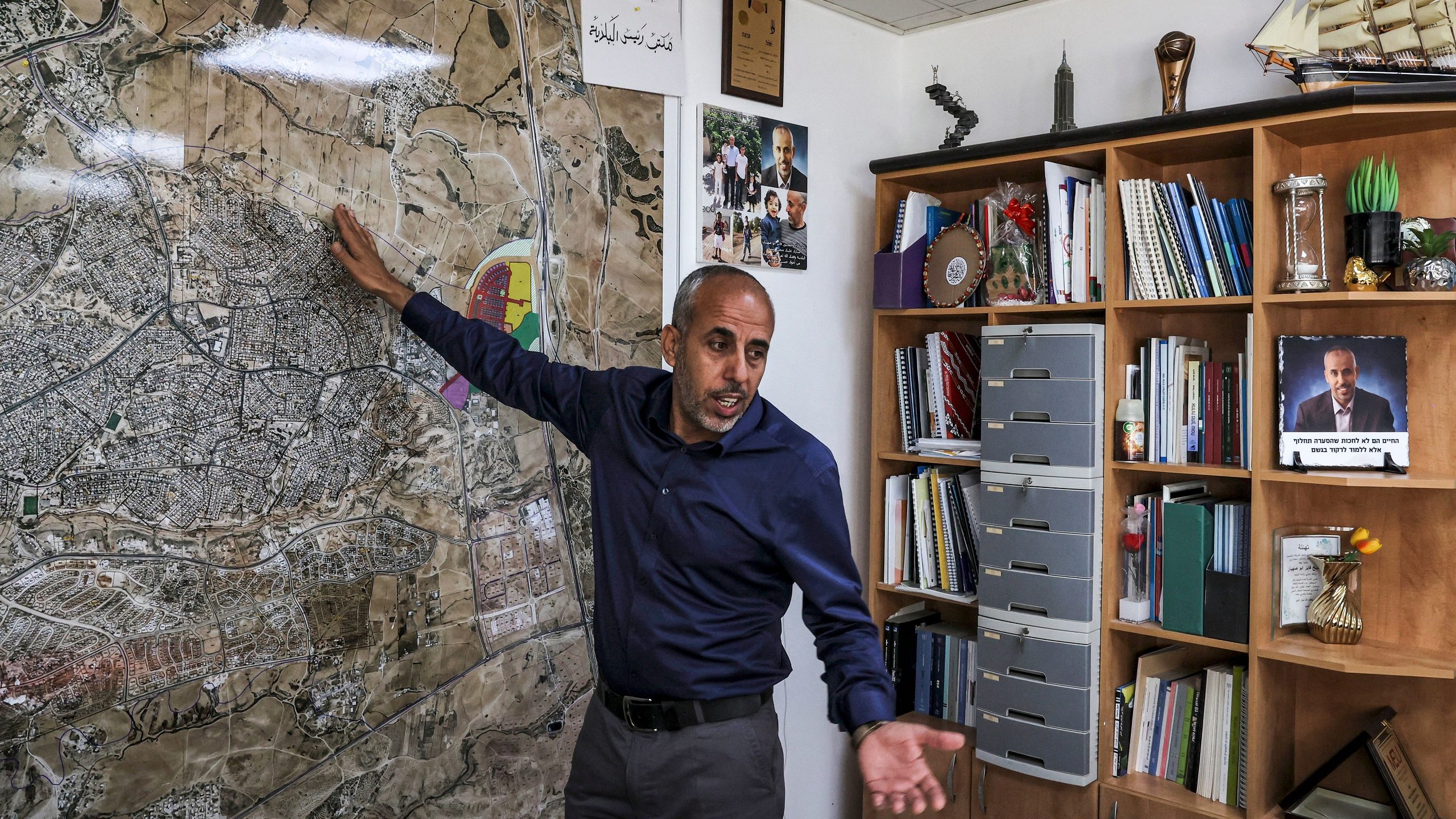Gang Fight Turns Bedouin City Rahat Into Battle Zone
The Israel Police claims that efforts are ongoing to stop violence in the Bedouin community after a business dispute between two families escalates into a series of shootings, injuring a 14-year-old girl
A girl, 14, was injured in the Bedouin city of Rahat in southern Israel on Sunday during a gang shootout.
“She came to me screaming, and then I saw the bullet in her stomach. I thought ‘I’m losing her,’” the mother of Rimas Abu Ali told Israeli media.
The incident comes after several days of intense gang gun battles in Rahat, many of which were documented by the shooters themselves and posted to social media in order to send a message to their rivals.
“It started when one family tried to blackmail protection fees from a cafe which belongs to the other family. When the cafe owner said no, the shootings began and it escalated into a gunfire exchange,” Fayez Abu Sahiban, Rahat’s mayor, told The Media Line. “Right now, there’s a cease-fire, which was agreed upon by the families after some mediation. The mediator told me he’s hoping to have a reconciliation agreement within a week,” he added.
According to the Israel Police, the dispute is religious, and is centered on the controversial decision by one of the families to employ waitresses in the conservative city. But sources in Rahat close to the matter claim otherwise.
The police chief told me he wants to allow forces to act with much less restraint towards anyone in the city carrying a weapon. I told him that’s exactly what we need.
“It has nothing to do with religion. It’s simply a dispute over resources and sources of income. There’s no ideology here,” one individual told The Media Line. “I don’t even want to call them gangsters, because gangsters usually have some decency. These are just wild outlaws,” he added.
So far, the police have arrested 11 people, and three remain in detention. One of them, Rushdi al-Bahiri, was defined by the police as a “gangster leader.” A source in Rahat confirmed that he is the head of one of the involved crime families.
While optimistic about a possible reconciliation, Sahiban is calling for a massive presence of Israel Police officers in his city.
“Police must some in and enforce the law here. This is what I told the deputy minister of interior security, Yoav Segalovitch, today,” Sahiban said on Monday. “The police chief told me he wants to allow forces to act with much less restraint towards anyone in the city carrying a weapon. I told him that’s exactly what we need.”
Israel Police southern district spokesman Zivan Freidin told The Media Line that law enforcement authorities face many challenges in Rahat.
“The local population here is hostile to the police. When there’s a call for police in Tel Aviv, I can send one car with two officers. Here in Rahat, I need at least eight officers, all combat ready. It makes reaction time much slower,” he said.
“The police are only good as an ER, it’s not a hospital – so to speak – for all the problems in Bedouin society. Counting on us to solve everything, including the deep cultural nuances, is unrealistic,” he said. “Arab society and Bedouin society need to take responsibility for themselves, and decide if they want the police to work or not. As long as they (Bedouins) clean the scene before we arrive and name squares after gangsters who died in a shootout with the police, the crime won’t go anywhere,” he added.
“Our young generation is unemployed, frustrated and eager to show it is powerful. It’s a dangerous mix, leading many people in our society to a life of crime and violence,” Sheikh Ibrahim Al-Assem, a religious leader in the Bedouin village of Tel-Sheva, told The Media Line. “Enforcement is one thing, but it won’t work without the police cooperating with tribe leaders and religious figures.”
“We have a strong Islamic identity which, if handled right, could help dignify the youth. These young people must realize that violence is not real power, but being a peaceful, believing Muslim is,” he added.
Crime rates among Bedouins are much higher than in other populations in Israel, according to police data, and could reach 10%-15% of Bedouins in southern Israel. About 50% of Bedouins in the Negev in southern Israel live under the poverty line, and unemployment in Bedouin villages reaches almost 20%, while the Israeli average is 6.1%. Most Bedouin villages in the Negev are not recognized by the state as official municipalities and are underdeveloped, lacking infrastructure for water and electricity.
“After this dispute is settled, we’ll need police to keep searching for illegal weapons. No Bedouin will just give his gun away. Police will have to work hard, and collect them one by one. I will be here to cooperate,” Sahiban said.
During the last year, the Israel Police intensified the struggle against crime in Arab villages in Israel, after murders in Arab society reached an all-time high. While the police claim there’s a lack of cooperation on behalf of Arab citizens, many in Arab society accuse police of not investing the needed effort outside of Jewish society.

